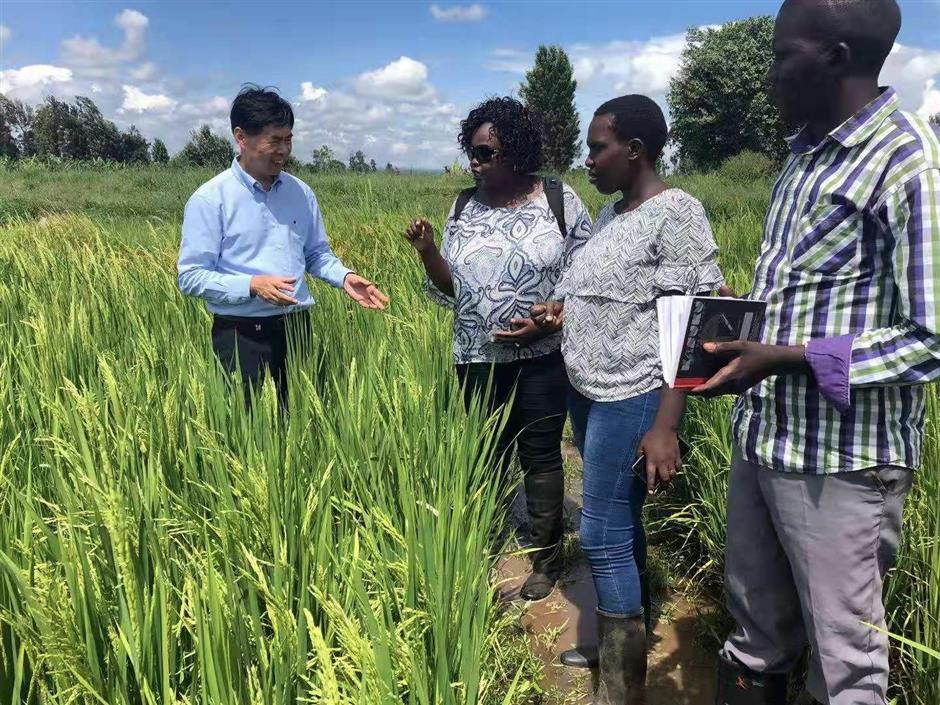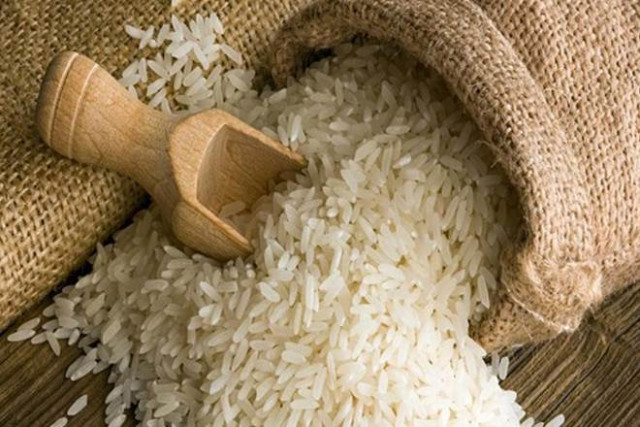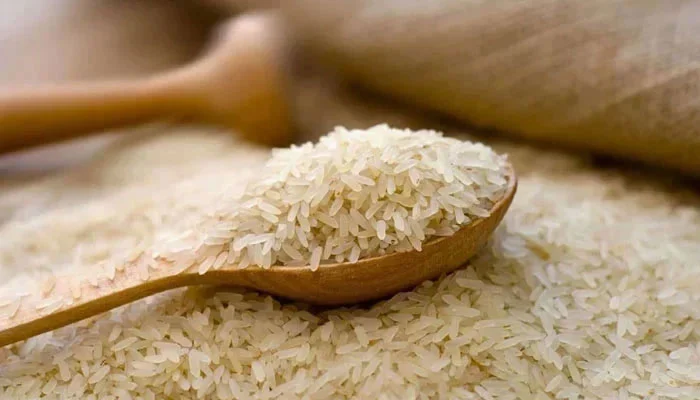Tags
China’s expertise in rice breeding set to increase food supplies in Africa

Liu Zaochang (left) explains cultivation methods of water-saving, drought-resistance rice to Kenyan researchers.
A research center in Shanghai has developed hybrid rice suitable for use in Africa to help improve food self-sufficiency on a continent often beset by drought.
The water-saving and drought-resistant rice, developed by the Shanghai Agrobiological Gene Center, may be approved as market-ready next year after six years of trials in Kenya, said Liu Zaochang, head of the center’s Africa program.
“We are probably the first in China to breed hybrid rice for Kenya,” he said. “Starting with Kenya, we are promoting several rice varieties to 11 African countries, especially Botswana, where rice hasn’t been grown in nearly 50 years.”
John Kimani, a rice breeder from the Kenya Agricultural and Livestock Research Organization, said the aromatic rice has an exceptional flavor, and the plants are highly productive, drought-resistant and water-saving.
“In terms of marketability, they are ideal,” he said. “We are thrilled at the prospect of releasing them for widespread cultivation.”
Research of the hybrid rice dates back to the early 2000s. One goal was to reduce the amount of water needed for cultivation, especially given periodic droughts suffered in Africa.
The center’s chief scientist, Luo Lijun, began research on the new strains of rice, with nearly 50 varieties developed.
The new breeds can save more than 50 percent of the water normally needed for cultivation and eliminate the need for 30 percent of fertilizers used. The strains also help reduce emissions harmful to climate.

John Kimani discusses the work of his organization in rice trials during an interview with Shanghai Daily.
Kenya has been trialing the rice in test fields.
In 2016, center staff went to Kenya to meet with representatives from the United Nations Environment Program.
“The program’s African office was very interested in water-saving, drought-resistant rice because it helps address urgent food needs on the continent,” Liu said.
Kenya has 100,000 hectares of paddy fields, which annually produce about a third of the nation’s 300,000 tons of rice consumption.
“It’s almost impossible for them to fill the gap by expanding the size of paddy fields due to covenants under the Convention on Wetlands,” Liu said. “And turning hillsides into rice fields is expensive.”
Kenya imports rice from South America and Southeast Asia to fill the nation’s demand. It also wants to become more self-sufficient in rice and other food production.
The visit to Kenya resulted in an agreement between the UN agency, the Shanghai gene center and the Kenyan agricultural organization.
In 2017, the first batch of hybrid seeds was planted in a trial field west of the Kenyan capital of Nairobi. Two more sites were later added – one at the border of Kenya and Uganda; the other in the port city of Mombasa.
“Results exceeded the expectations,” Liu said. “The hybrid rice was shown to save water and need less fertilizer, while producing higher yields that are resistant to rice blast spores.”
Kimani from the Kenya Agricultural and Livestock Research Organization said the higher productivity was obvious to the 200 local farmers participating in the trials.
“Now we can get about 5 tons per hectare compared with 500 kilograms from previous rice breeds,” he said.
Increased productivity means higher incomes for farmers, he added.
“Previously, the rice they grew was just enough to feed themselves,” he explained. “In the future, they will be able to sell the surplus in the marketplace.”
In August, Chinese president Xi Jinping unveiled a plan for helping to modern agriculture in Africa through an array of joint research projects and transfer of modern technologies.
https://www.shine.cn/news/in-focus/2312142611/Published Date: December 14, 2023





